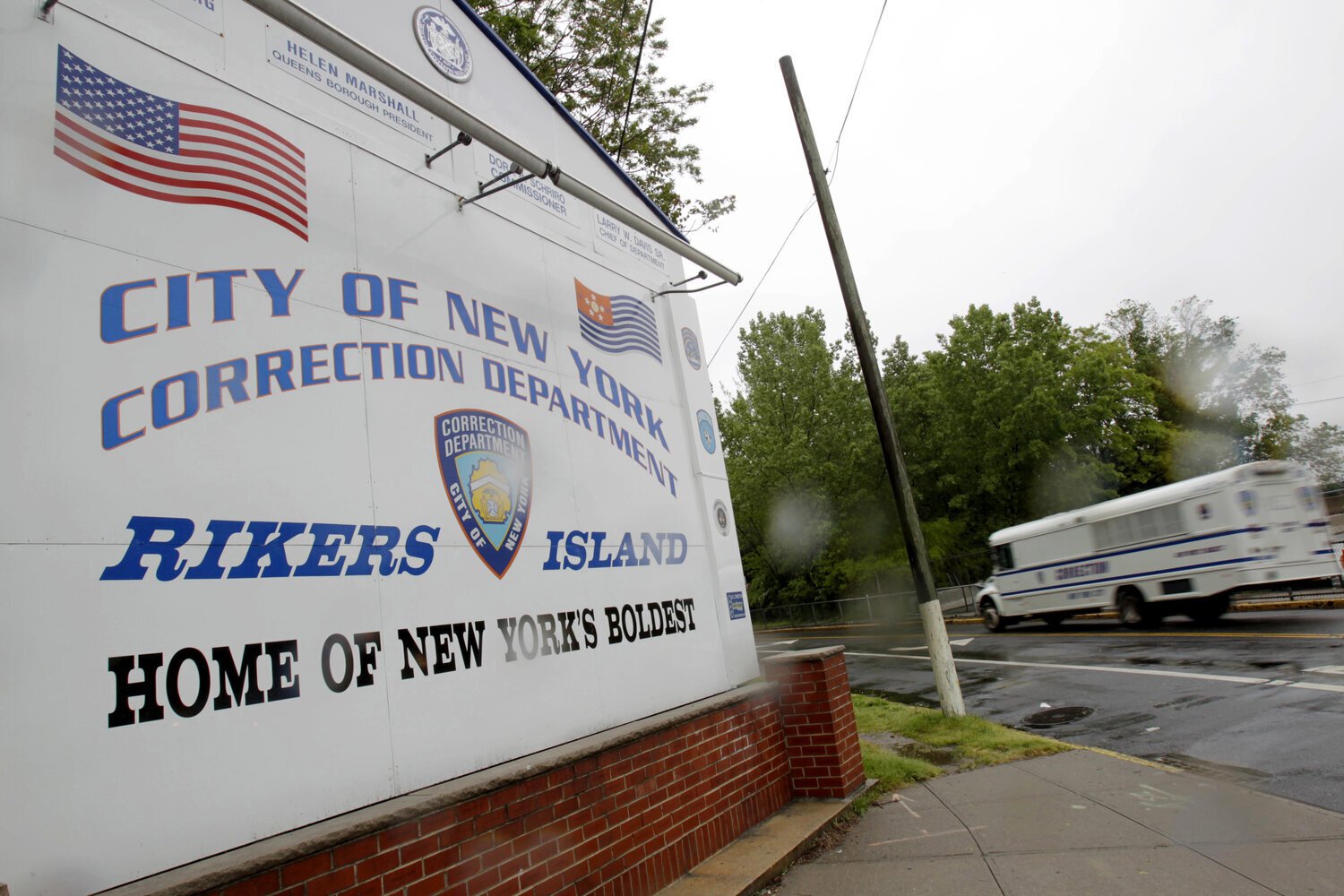Man dies at Rikers, death toll hits 15
/Malcolm Boatwright, 28, died of an alleged medical issue while in DOC custody on Friday, making him the 15th person to die while detained in New York City this year. AP file photo by Seth Wenig
By Jacob Kaye
A 28-year-old man being held at Rikers Island died Friday morning, the New York City Department of Correction announced.
Malcolm Boatwright, who was being held at the Anna M. Kross Center on Rikers Island, died at Bellevue Hospital as a result of a “medical issue.”
Boatwright became the 15th person to die in DOC custody this year, making this year the deadliest year for detainees inside of the city’s jails since 2016.
According to the DOC, Boatwright, who was being held on child sexual abuse charges, began to experience medical issues on Thursday, Dec. 9, and was transported to the hospital. He died the next morning at 5:36 a.m., the DOC said.
The cause of death is still under investigation.
Boatwright had been incarcerated for nearly a month after being arrested on Nov. 11, court records show.
On Nov. 12, a Brooklyn judge ordered a psychiatric exam for Boatwright and remanded him.
“This is a heartbreaking loss at the end of a very difficult year,” DOC Commissioner Vincent Schiraldi said in a statement to the press. “My deepest sympathy goes out to Mr. Boatwright’s loved ones.”
The DOC called Boatwright’s death the 13th to occur this year – two detainees, 58-year-old Anthony Scott who died after attempting to hang himself in a cell and 48-year-old Tomas Carlo who died of a medical issue, were both granted compassionate release prior to their deaths.
Scott, who died in October, was the last incarcerated person to die in custody this year.
The DOC saw a spat of deaths in September, with 24-year-old Esias Johnson was found dead in his cell on Sept. 7, 42-year-old Isaabdul Karim dying of an apparent medical condition on Sept. 19 and 24-year-old Stephan Khadu dying of an apparent medical condition on Sept. 22.
Five of the 15 deaths in New York City jails have been suspected suicides, according to a recent report from the federal monitor appointed to oversee Rikers Island.
“This is just going to keep happening and nobody’s doing anything about it,” said Melania Brown, the sister of Layleen Polanco, who died in DOC custody in 2019. “Yet another family has to grieve like I do, and during the holidays. He was so young and they just cut his life short.”
“How dare New York City officials continue to be so complacent with our people dying in the city jails,” she added. “Every official must do everything in their power to stop the crisis of death. District Attorneys and judges must release people and not send one more person to these deadly jails. Speaker Corey Johnson must call a vote on legislation with veto-proof supermajority support to end solitary confinement. The Mayor and Governor must treat this as the crisis it is and coordinate efforts to decarcerate.”
Last week, Steve J. Martin, the federal monitor, released his 12th Nunez Report on the state of Rikers Island. It mostly covered conditions beginning from January 2021 through July 2021 – the report is biannual.
According to Martin, 2021 will likely end up being the most violent year in the jail complex in recent history, with detainee deaths, detainee violence and use of force committed by correctional officers against detainees all seeing spikes.
While Martin noted that the DOC had made progress in reducing violence and bringing staff back to work – historic staff shortages caused by officers taking sick days and going AWOL have contributed to the rise in violence – in recent months, he also said that many of the issues within the department are deep rooted.
“The Department’s decades of poor practices has produced a maladaptive culture in which
deficiencies are normalized and embedded in every facet of the Department’s work,” the report reads. “The Department’s multitude of nonfunctional systems, and ineffective practices and procedures combine to form a deeply entrenched culture. This traps the Department in a state of disrepair, where even the first step to improve practice is undercut by the absence of elementary skills—be it Staff deployment, safety and security, or managing/supervising Staff—and results in a persistently dysfunctional system.”
Correction: An earlier version of this story said that Esias Johnson died of suspected suicide. This is incorrect. The cause of his death is under investigation.




